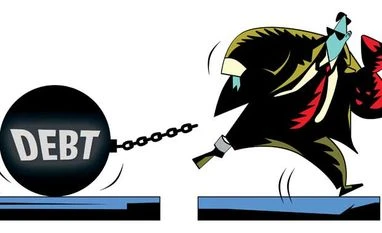Shares of JP Associates gained 15.6 per cent, Alok Industries rose 13.7 per cent, Bhushan Steel by 11.5 per cent, Adani Enterprises by 11.5 per cent and JP Power by 7.2 per cent. These five companies had combined debt of Rs 1.6 lakh crore at the end of March.
The benchmark Sensex, after declining 0.5 per cent intra-day, ended almost unchanged on Tuesday. Shares of indebted companies gained as the new scheme proposed by the RBI will ease the debt repayment period and ease the capital structure, said analysts. RBI has said debt can be classified into ‘sustainable’ and ‘unsustainable’ parts. The former will be serviced by existing cash flows, while the unsustainable debt will be converted into equity or convertible debt. Accounts that are worth more than Rs 500 crore would be eligible for the new scheme.
Analysts said the new scheme was better than previous such attempts at tackling bad loans. “On the one hand, RBI has allowed leveraged companies to have a comfortable capital position to service debt and on the other, banks do not have to necessarily take significant provisions to effect this change. We still need to see how many projects meet the conditions but this appears to be a major positive step for banks to reduce their gross non-performing loans,” said analysts at Kotak Institutional Equities.
Experts said the schemes will particularly be beneficial for companies with operating assets and a high portion of sustainable loans. Analysts at Emkay said the scheme will improve viability in such cases. However, in case of a high level of unsustainable loans, there is a “risk of increased supply of equity shares due to conversion”, said Emkay.
Unlike earlier schemes, the new scheme allows existing promoters to continue even if their stake gets diluted due to conversion of debt into equity. The move, experts said, was well-thought but might not be effective id the conversion leads to heavy dilution of promoter holding.
“The unsustainable portion of the loans, which gets converted into equity, leaves the promoter with little skin in the game as the major portion of shareholding will be with the banks (as in the case of Kingfisher Airlines),” said Emkay.
)